
From the Chapter

Don’t Be Offended
By The Rev. Kathryn Boswell, ‘10
When I traveled to Wisconsin to study at Nashotah House for my very first seminary course, I had no idea where I was going. I took a bus from Potsdam to Milwaukee, which took about 30 hours, and then I took a local bus called the “Badger Bus” out into the boonies, and it dropped me off in the middle of nowhere, and that’s when I decided to panic. There was nothing familiar around me, and no one I spoke with had ever heard of Nashotah House, and I didn’t have a map or a cell phone, and I felt completely alone and helpless.

Penance that Outlasts the Emotion
By Thomas S. Heard, PhD, ’16
With Lent approaching, many thoughts and emotions are summoned as Ash Wednesday arrives, sending us into forty days of prayerful reflection. “What will I do with this Lent?” “What will I give up and why?” “How can I better serve the Lord?” While these are significant questions, the self-generated answers are sometimes trivial or inconsequential, beneficial neither to the body of Christ nor the Christian’s growth as a disciple. A sermon by the Tractarian writer, John Henry Newman (1801-1890), caught my eye one evening as I was reading one of his collections. From Psalm 27, Newman wrote on the concluding verse: “O tarry thought the Lord’s leisure: be strong, and He shall comfort thine heart; and put thou thy trust in the Lord.” A contemporary translation finds: “Wait for the Lord, be strong and let your heart take courage; wait for the Lord.” Waiting is a challenge for Christians who internally feel moved and called “to do something” during Lent.
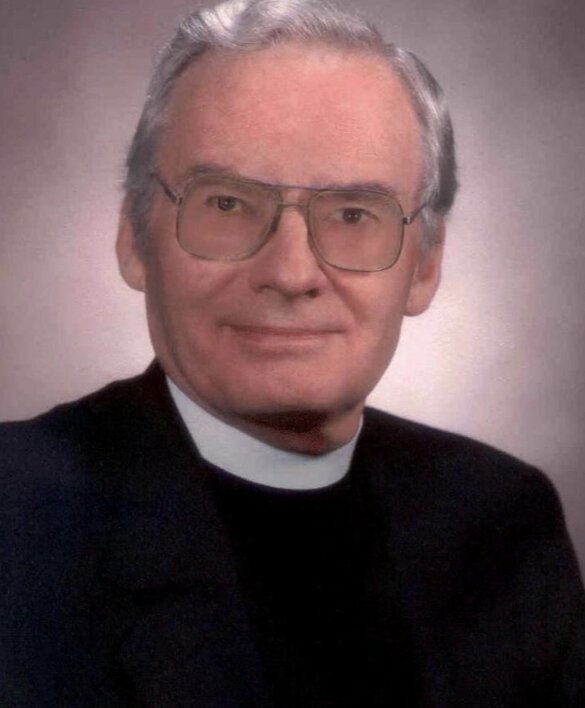
The Rev. Canon M. Fred Himmerich (1930-2021)
The Rev. Canon M. Fred Himmerich (1930-2021), an Episcopal priest in the Diocese of Milwaukee died January 29, 2021. Fr. Himmerich graduated from Nashotah House in 1962 and the same year was ordained to the priesthood by The Rt. Rev. Donald Hallock. Fr. Himmerich held multiple additional positions during his time with the Diocese of Milwaukee. He served as director of Camp Webb in 1969 and 1970, and adjunct professor at Nashotah House from 1976 to 1986. A Requiem Holy Eucharist and committal will take place at All Saints' Cathedral in Milwaukee on October 16, 2021.
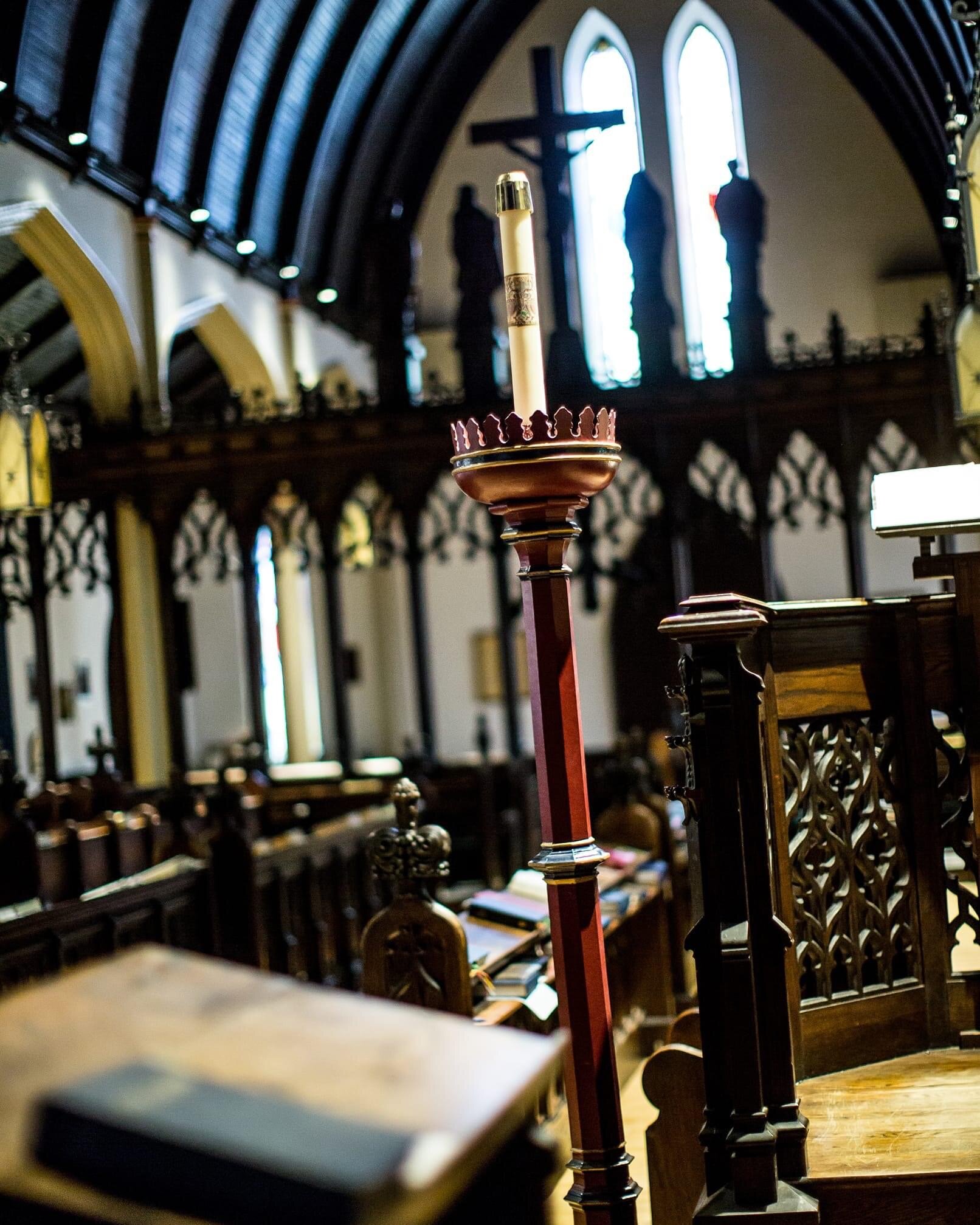
The Line Between Good and Evil
By Captain Lance Lormand, ‘16, 355th Wing Chaplain Corps, USAF
With each New Year come new opportunities and resolutions to better ourselves. My resolution this year is a commitment to spend less time on social media and less time looking at a screen in general, whether phone, tablet, or television. We have probably all considered ways in which we could better approximate the ideal self we imagine, and often the applications on our devices can be used to help chart and motivate these goals.
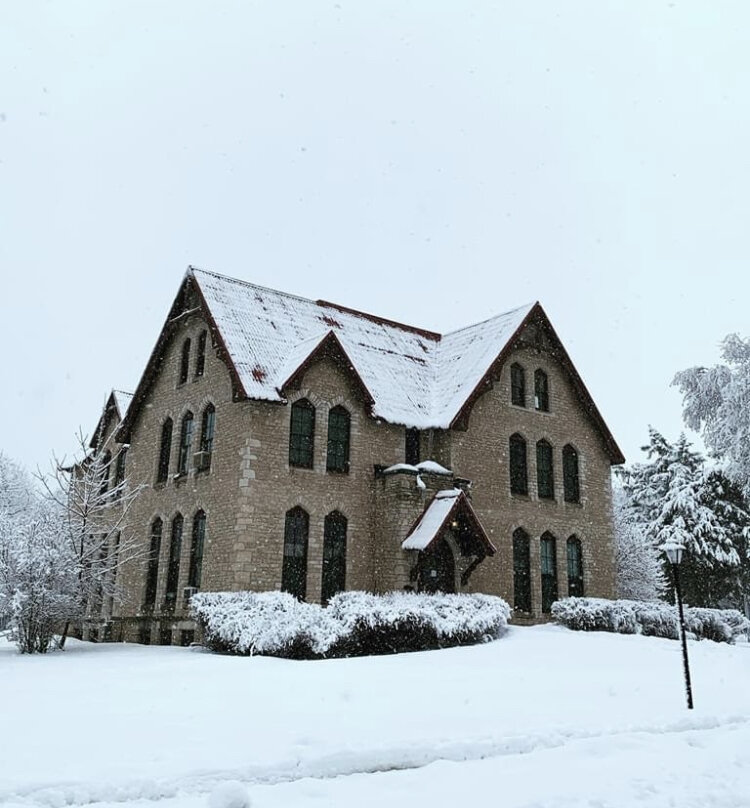
Obsessed with God’s Beauty: The Surprising Jonathan Edwards
By Gerald McDermott
Most Americans know Jonathan Edwards (1703-1758), if they know him at all, as the preacher of “Sinners in the Hands of an Angry God.” Many conclude that he is not only intimidating but repulsive because of the wrathful God he depicts in painful detail. This perception of Edwards is not new. Harriet Beecher Stowe complained that Edwards’s sermons on sin and suffering were “refined poetry of torture.” Few Americans have known that Edwards was actually obsessed not by God’s wrath but by God’s beauty.
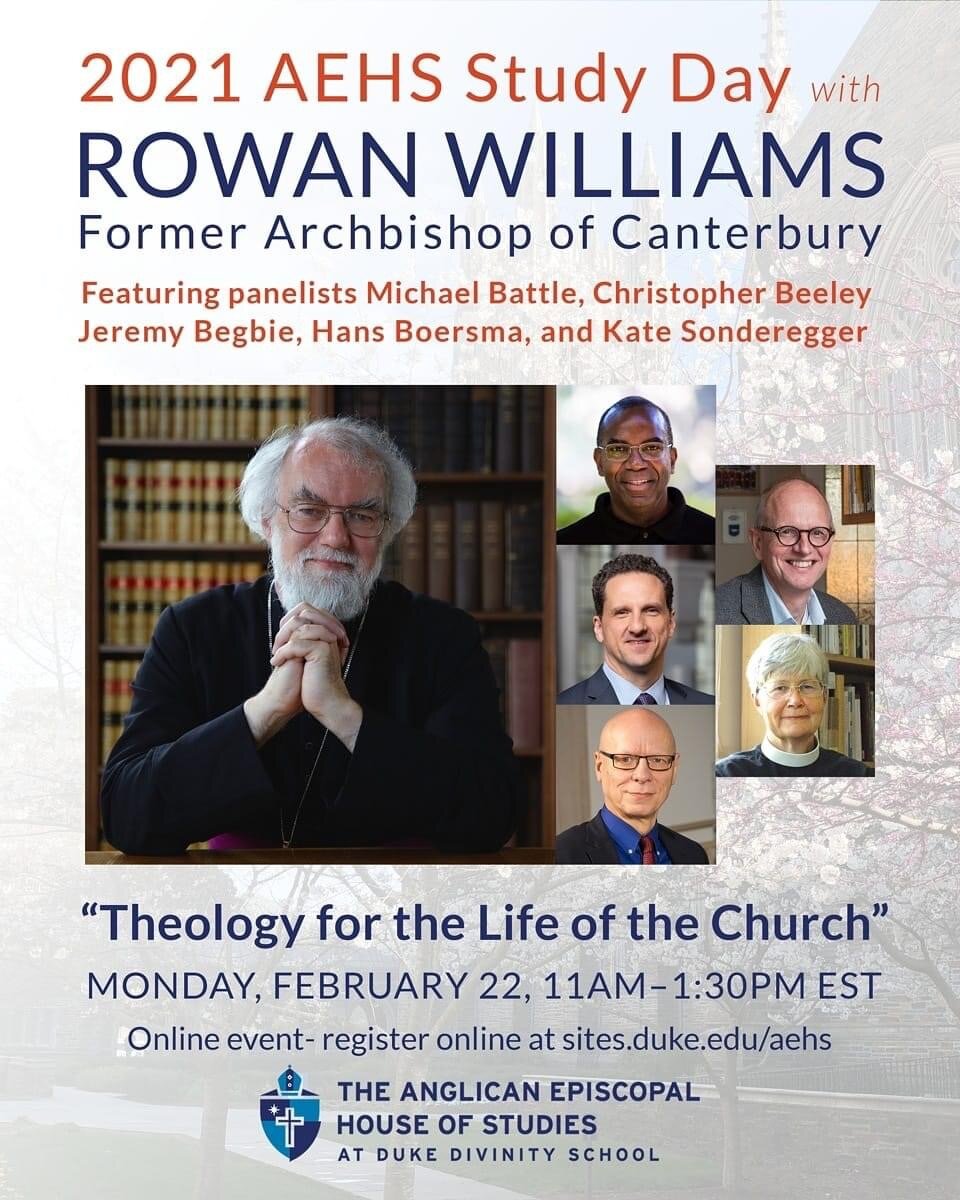
Theology for the Life of the Church: Online Event
The 2021 annual Anglican Episcopal House of Studies (AEHS) Study Day at Duke Divinity School will feature Dr. Rowan Williams, the former archbishop of Canterbury, speaking on "Theology for the Life of the Church." Noted scholars including Hans Boersma from Nashotah House will be in attendance. The annual Study Day offers clergy, other ministry professionals, and students the chance to learn and reflect on a substantial topic relating to theology and ministry. This free event is online and open to all, but registration is required. Monday, February 22, 2021 - 11:00 AM to 1:30 PM (EST)

Elizabeth Ann Constantian, 1937-2020
Elizabeth started at an Episcopal Convent in Tucson, but this was too restrictive for her free spirit. Then it was on to Oral Roberts University in Tulsa, Oklahoma, where she taught Biology for a year while the regular instructor was on sabbatical. Then it was on to a seminary in New York. While there, she became part of the charismatic renewal that was exploding in the mainline churches at that time. From there, she went to Nashotah House in Nashotah, Wisconsin, where she studied from 1969-70.
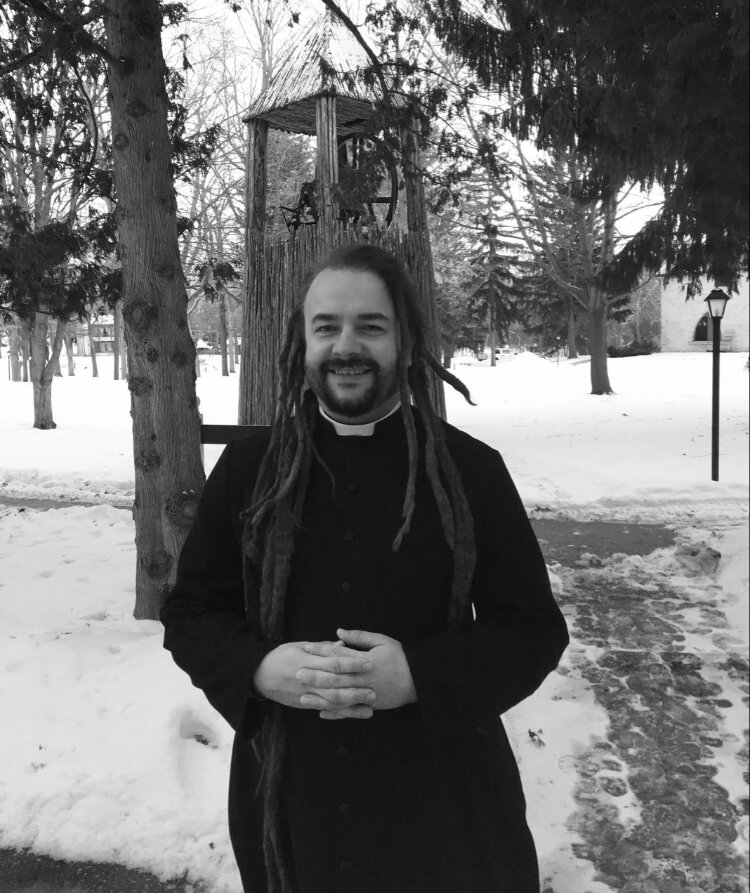
The Gate of Heaven Is Everywhere
Award-winning poet and essayist Fred Bahnson interviews several modern-day contemplatives, including Nashotah House alumnus The Rev. Adam Bucko (‘19) for Harper’s Magazine. Bahnson considers Bucko’s involvement in reviving the Christian contemplative tradition. For the last several years, Bucko has become a leading voice for a growing population within American Christianity, particularly among those drawn to Christianity’s more ancient, mystical expressions. For Bucko, who offers a weekly contemplative service at the Cathedral of the Incarnation in Garden City, New York, bringing a “new monastic” ethos to community “takes the best of Christian monastic traditions and translates them into an engaged path of contemplation and justice for those who no longer feel at home in the church.”

Pilgrimage Now and Then
By The Rev. Dr. Thomas N. Buchan, III | Associate Professor of Church History at Nashotah House
The first real sign that my pilgrimage to the Shrine of Our Lady of Walsingham wasn’t going to happen came in mid-March 2020. At the beginning of the second week of the month, I had received word from the Shrine that accommodations were available for dates in the end of June and beginning of July. By the beginning of the third week of March, however, the Shrine was unable to confirm my booking pending a decision as to whether it would remain open in response to the burgeoning coronavirus pandemic. For a few weeks, I nursed some slender hope of making my way to “England’s Nazareth” in the summer of 2020, but it steadily became clear that this would not be possible. For the present, it seemed my pilgrim intentions would have to remain just that: intentions.
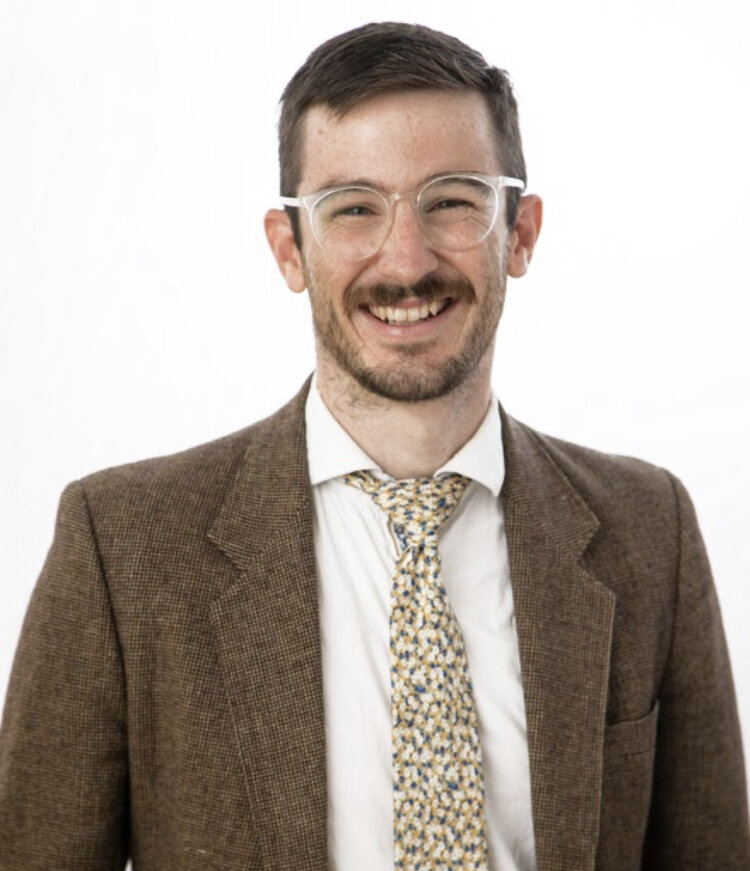
In the Days of Herod the King
By Jack Franicevich, Candidate for Master’s in Sacred Theology (STM), Nashotah House
Herod schemes to snuff out the truth so that he doesn’t have to face it. You know the story. He sends the wise men out to find Jesus. Herod, like the Serpent in the garden, becomes a deceiver. Herod will not seek first the kingdom of heaven, and he will not seek heaven’s righteousness. Rather, he seeks to subject the Lord Jesus to his own rule. Jesus is the true light of the world, the only one in whom is life, and in whose broken body alone the warring world will be reconciled. But Herod prefers darkness to light.

Reconsidering the Parables of a “Marginal Jew”
By Garwood P. Anderson
When contemporary theologians and “churchmen” disparage the “historical-critical method” for its alleged barrenness, it is probably a book like this that they have in mind. That verdict is not meant to be as harsh as it sounds, but rather to indicate that the fifth volume of John Meier’s A Marginal Jew series is a near-perfect member of its species, a sincere and successful attempt at disinterested biblical criticism. In this case, the central project is assessing the historical authenticity of the parables attributed to the Jesus of history, and (spoiler alert) the conclusion is that very few of the parables attributed to Jesus are demonstrably traceable to the Jesus of history.
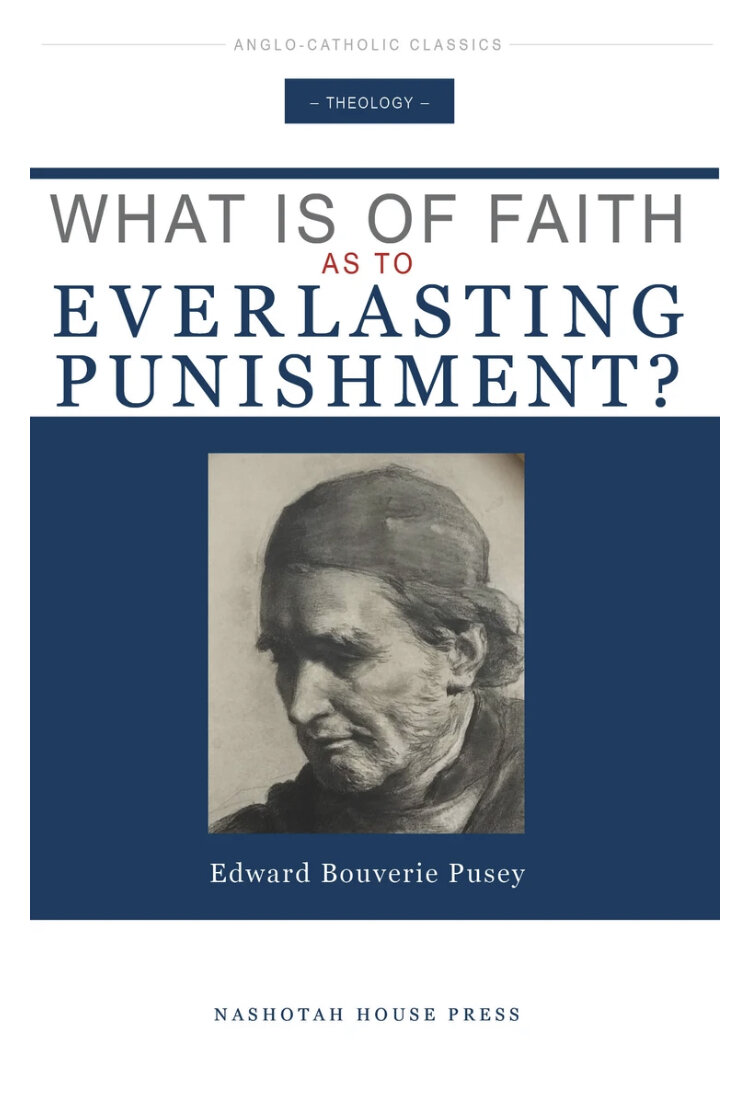
What is of Faith as to Everlasting Punishment? - E.B. Pusey
A Review by The Rev. Ben Jeffries, ’14
Late in 2019, David Bentley Hart caused quite a stir with his self-consciously belligerent That All Shall be Saved. Many fine scholars (Harrow, Pakaluk, McClymond) countered with orthodoxy, but to the disciple of the Tractarians, this all seemed like a bit of history repeating.
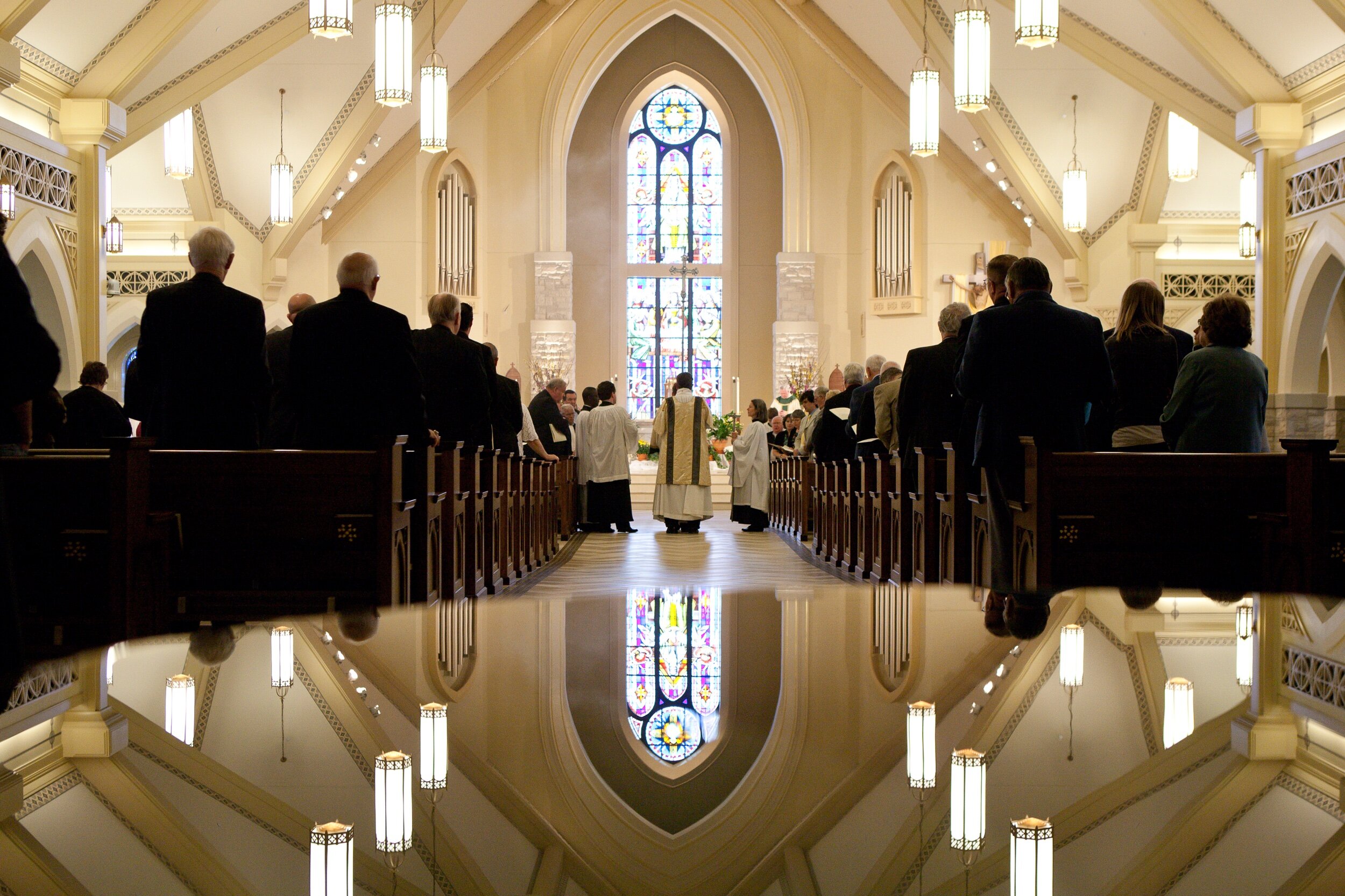
Two Welsh Poets on the Priesthood
By The Rev. Charles Hoffacker, ’82
Those who exercise the ministerial priesthood may sometimes feel perplexed about what they are doing and what difference it makes. I have found that reflection on a pair of twentieth-century Welsh poems, “The Country Clergy” and “Importance,” can prove helpful in this regard, so I commend them to clergy and to anyone concerned with the significance of ordained ministry.
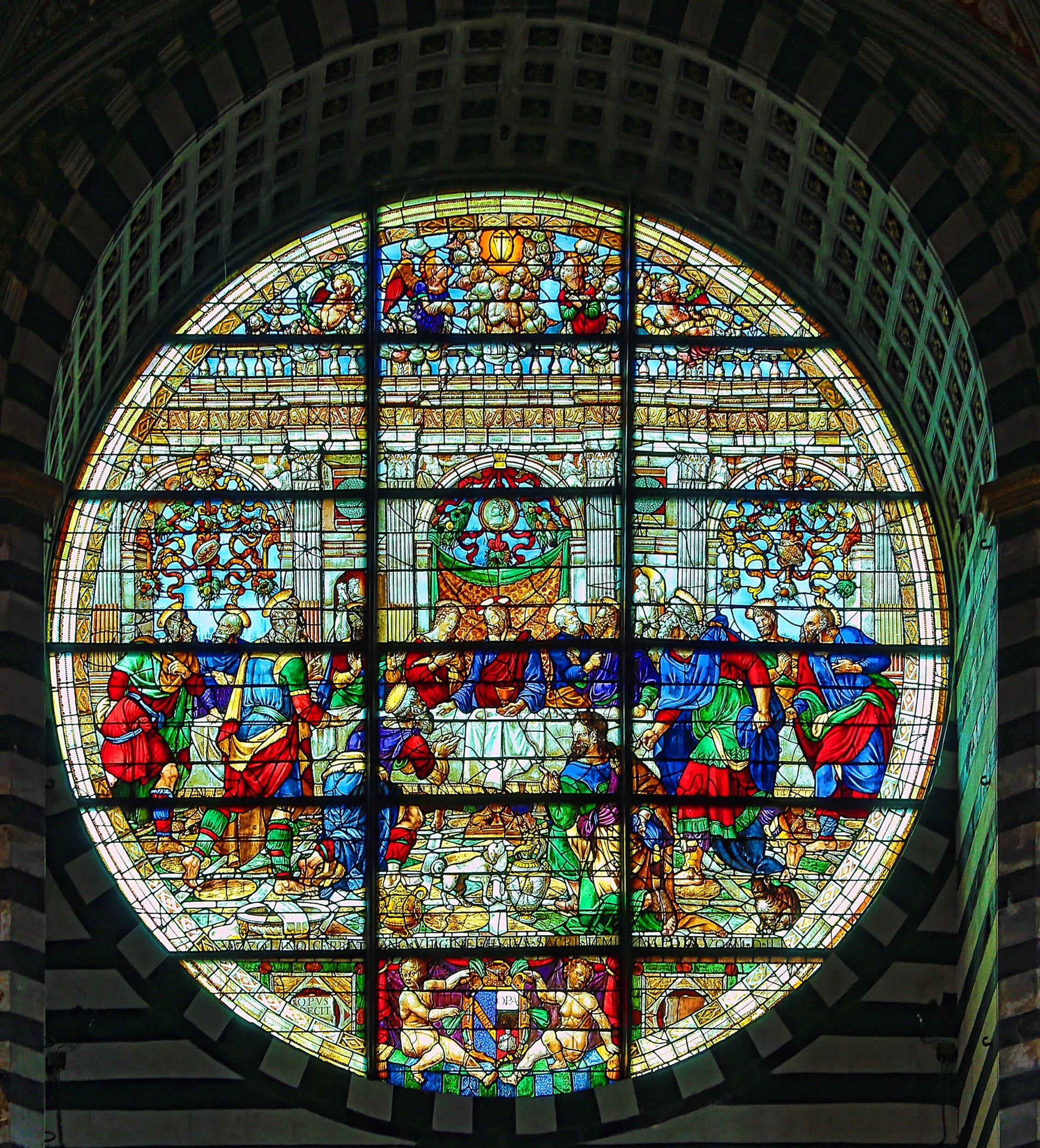
Meritocracy and the Failure of the Christian Moral Imagination
By Elisabeth Rain Kincaid, Ph.D.
In his confrontation with King David in 2 Samuel 12, the prophet Nathan tells a heart-rending story of a rich man who, rather than give up one of his own flock to feed a hungry traveler, takes away the single and much-loved lamb of the neighboring poor man and his family. Enraged at this obvious injustice, David condemns the man to death and demands that he pay quadruple restitution for the loss of the lamb (2 Sam. 12:5–6). In a dramatic and prophetic turn, Nathan looks at David, “You are the man!” (2 Sam. 12:7). The theft of the precious lamb is of course an analogy to David’s rape of Bathsheba and murder of her husband, Uriah. If we have ears to hear, a similar denunciation, directed towards our pretense that we have earned what we have, echoes from the Scriptures. But first let us consider the story itself.
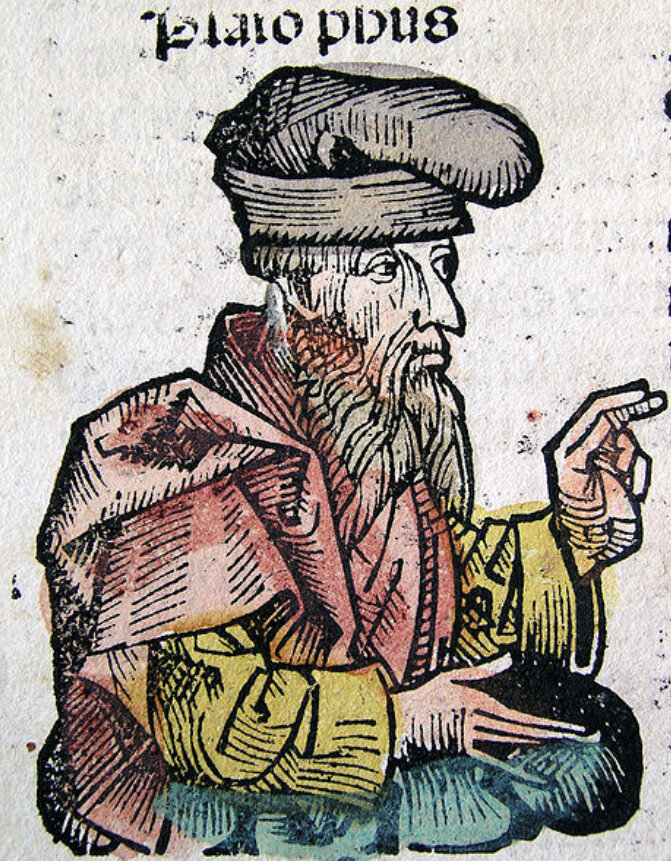
Dr. Andrew Louth: The Necessity of Platonism for Christian Theology
2021 Robert Crouse Memorial Lecture | DR. ANDREW LOUTH “The Necessity of Platonism for Christian Theology” | This is a recorded lecture, courtesy King’s College, Cambridge.
The question of the Platonic foundations of Christian theology was a central theme of the scholarship of Father Crouse. For him, the wisdom of the Greeks was not superseded by Christian revelation, but built upon and brought to its fulfillment. Building on his recent work on the writings of Hans Urs von Balthasar, Dr. Louth will explore this theme in honor of Father Crouse, he says, “hoping this will be a fitting tribute to one I much admire.”

The End of the Law
By Hans Boersma
Historical-grammatical exegesis is what conservative theologians do. Or, so many of them appear to think. The reasoning seems impeccable: By sticking to the text—its grammar, as well as its literary and historical background—biblical theologians can put up an objective bulwark against postmodern subjectivist and revisionist interpretations of the biblical text. Sticking to the text and determining authorial intent are the two key defense tactics of conservative Christians: Only the written word is the law.
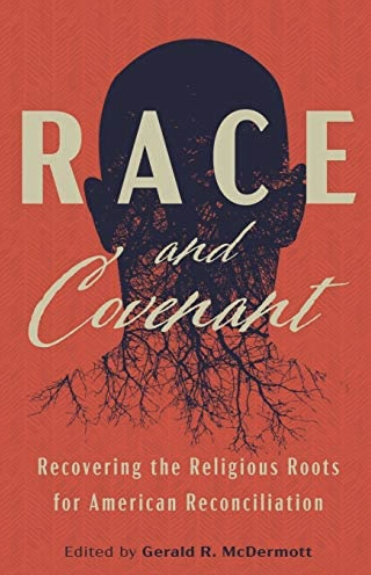
Race and Covenant: A Conversation with Gerald R. McDermott
An interview and book excerpt from Gerald R. McDermott, recently retired from the Anglican Chair of Divinity at Beeson Divinity School. Dr. McDermott taught at Nashotah House during the Fall 2020 semester, and is the editor of the recently published Race and Covenant (Acton Institute, 2020). The book’s 15 contributors address the race conflict which our nation faces and suggest ways for us to go forward. All of them think that religion—and the historic doctrine of the national covenant in particular—are essential to healing our social wounds.
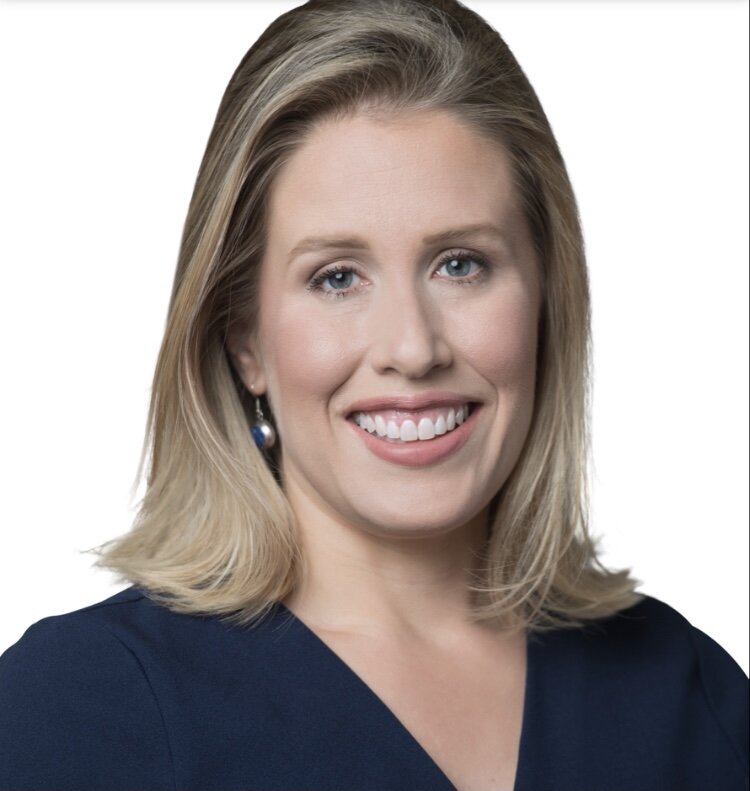
CEEP Seminar: Ambassadors of Reconciliation
Elisabeth Rain Kincaid, Assistant Professor of Ethics and Moral Theology at Nashotah House will be the moderator for a Consortium of Endowed Episcopal Parishes (CEEP Network) panel discussion, focusing on the topic: Ambassadors of Reconciliation: The Hard Work of Repairing Our Social Compact. Christians are called to be a witness against violence and seek the peace. What does this look like? How can Christians work to reconcile justice and love? What lessons should the church have learned over the last several years?
Join us for an insightful conversation into being ambassadors of reconciliation and using love as a primary tool.
Date January 14, 2021 at 3:00 p.m. EST | Register here for this free event.

The Shift Away from Me-Centered Ideology
By Jarod Grice
If you were to ask any evangelical how they would describe their faith in Christ, you would likely get some version of "it's about a personal relationship with Jesus". We've all heard it (and said it) a million times. “It's not a religion, it's a relationship”. This phrase has become so common in the parlance of evangelicalism that it feels off-limits to challenge.

The Book of Common Prayer: History, Doctrine, Revision, Material History
By The Rev. Matthew S. C. Olver, Ph.D. Assistant Professor of Liturgics and Pastoral Theology
Just as close to this tradition’s heart was a book. We often forget how much of this is due to a few strange accidents of history. The movable-type printing press was only 100 years old, for one, when the first Book of Common Prayer was published in 1549, so the possibility of books such as this was still relatively new. Second, Henry’s decision to break from Rome to secure his divorce occurred at a time when a whole constellation of impulses for reform, both inside and outside England, had begun to gather force. And the separation made possible a great deal more reform than Henry himself had desired.
